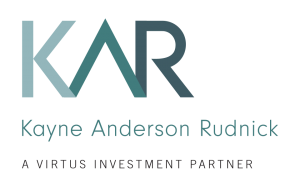KAR Small-Mid Cap Growth SMA
KAR Small-Mid Cap Growth SMA

Resources
Investment Objective
- To generate attractive risk-adjusted long-term returns by investing in the stocks of U.S. small- and mid-cap growth companies with durable competitive advantages, excellent management, lower financial risk, and strong growth trajectories
- To identify businesses that are differentiated by above-average returns on capital trading at attractive valuations
Investment Philosophy
We believe that purchasing high-quality businesses with competitive protections at attractive valuations will achieve excess returns over a complete market cycle.
Investment Partner
Kayne Anderson Rudnick Investment Management, LLC
Founded in 1984, Kayne Anderson Rudnick (KAR) manages quality-focused equity strategies across investment styles, market caps, and geographies. KAR believes that strong risk-adjusted returns may be achieved through investment in high-quality companies with market dominance, excellent management, financial strength, and consistent growth, purchased at reasonable prices.
Learn more about Kayne Anderson Rudnick Investment Management, LLC
Investment Professionals

Julie Biel, CFA
Chief Market Strategist, Portfolio Manager, and Senior Research Analyst
Industry start date: 2004
Start date as fund Portfolio Manager: 2018

Chris Wright, CFA
Portfolio Manager and Senior Research Analyst
Industry start date: 2012
Start date as fund Portfolio Manager: 2018
